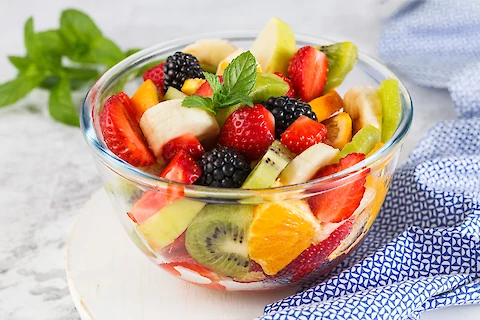
Understanding the difference between good and bad sugars can often seem like navigating a complex maze. For seniors, this knowledge is vital given the unique nutritional needs and health considerations that come with age.
Understanding Sugar: The Basics
Sugar, in its simplest form, is a carbohydrate that our bodies convert into energy. However, not all sugars are created equal. They can be classified into two main types: natural and added sugars. Natural sugars, as the name suggests, occur naturally in foods like fruits and dairy products. Added sugars, on the other hand, are added during food processing. These can be a major culprit for many health issues.
Bad Sugars: Added Sugars and Processed Foods
Added sugars are ubiquitous in our modern diet. Soft drinks, candies, baked goods, and many processed foods are loaded with them. These sugars contribute to many health issues, including obesity, heart disease, and type 2 diabetes. For seniors who are already at an increased risk for these conditions, the hazards of added sugars are even more significant. The challenge lies in the fact that these sugars are often hidden in unexpected places, like dressings, sauces, and even “healthy” snacks. This makes reading food labels carefully crucial.
Sugar Alternatives: Corn Syrup and Artificial Sweeteners
Corn syrup is one of the most common sugar alternatives used in food manufacturing. It's cheaper and sweeter than regular sugar, but it packs a harmful punch. High fructose corn syrup has been linked to increased risks of obesity and diabetes. Other sugar substitutes like artificial sweeteners, often seen as a “healthy” alternative, can also harbor potential health risks.
Good Sugars: The Role of Whole Fruit
While it's important to limit the intake of added sugars, we must not overlook the benefits of natural sugars found in whole fruits. Fruits not only offer the sweetness we often crave, but they are also loaded with fiber, vitamins, and antioxidants, which promote overall health. The fiber in fruit slows down the metabolism of the sugars, preventing a quick sugar spike that you may get from processed foods.
Practical Tips for Seniors to Reduce Sugar Intake
Reducing sugar intake doesn't mean bidding goodbye to sweet delights. Start by reading food labels wisely to spot hidden sugars. Names like high fructose corn syrup, evaporated cane juice, or anything ending in "-ose" are usual suspects.
Try to replace sugary foods with healthier alternatives. If you enjoy sweetened yogurt, switch to plain yogurt and add fresh fruits for natural sweetness. A gradual reduction in sugar can help you adjust better and maintain this healthier lifestyle in the long run.
Senior Helpers Waxhaw-Monroe Helps Seniors With Meal Planning and Prep
Understanding the difference between good and bad sugars is essential for everyone, but even more so for seniors. Doing so enables us to make informed choices to lead a healthier, happier life. Remember, moderation is key. It's okay to indulge occasionally, but awareness of what goes into our bodies makes a substantial difference.
If you or your loved ones need support in making such nutritional decisions, our compassionate helpers at Senior Helpers Waxhaw-Monroe are just a call away. We are dedicated to serving seniors in Waxhaw, Monroe, Concord, Kannapolis, and Salisbury. Let us assist in providing a healthier, engaging, and active lifestyle for our seniors because they deserve nothing but the best. Contact us today.